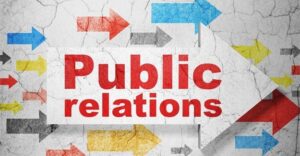Climate change is no longer a distant threat; it’s a pressing reality demanding immediate action. While scientists have been sounding the alarm for decades, translating complex scientific data into public understanding and mobilizing action remains a significant challenge.
This is where public relations steps in, wielding the power of communication as a weapon in the fight against environmental degradation.
Building awareness and urgency
The cornerstone of any effective PR campaign is clear, concise messaging. PR professionals can act as translators, breaking down complex scientific concepts on climate change into digestible information for the public.
This involves utilizing various communication channels to disseminate accurate information about the causes, consequences, and potential solutions to climate change.
Effective communication goes beyond facts and figures. It’s about captivating the audience and fostering a sense of urgency. PR professionals can leverage storytelling techniques to personalize the narrative.
Images of melting glaciers, rising sea levels, and extreme weather events paint a vivid picture of the crisis’s impact, connecting with viewers on an emotional level. This emotional connection is crucial to drive action.
Highlighting solutions
Climate change can often feel like an insurmountable problem, leading to apathy and inaction. PR campaigns can counter this negativity by showcasing success stories.
Highlighting examples of individuals and businesses implementing sustainable practices – energy-efficient homes, renewable energy sources, responsible waste management initiatives – demonstrates the feasibility of change.
Shifting the narrative
The way climate change is framed in public discourse significantly impacts public perception. PR can play a crucial role in shaping the conversation by emphasizing the social and economic benefits of addressing the crisis. This reframes climate change from a burden to an opportunity.
Highlighting the cost savings associated with energy efficiency, the creation of green jobs in renewable energy sectors, and the overall improved health outcomes from cleaner air can garner broader support for environmental action.
Holding businesses accountable
Unfortunately, not all PR efforts in the climate arena are created equal. Some corporations and industries with a vested interest in maintaining the status quo resort to “greenwashing.”
This tactic involves creating a misleading image of environmental responsibility through deceptive marketing and PR campaigns. Here, PR professionals with a conscience have a vital role to play in exposing such greenwashing.
By analyzing corporate environmental claims, identifying inconsistencies between stated goals and actual practices, and bringing these discrepancies to light, PR can hold corporations accountable. This transparency fosters a more honest conversation about sustainability, allowing consumers to make informed choices.
Promoting transparency
In the fight against climate change, transparency is key. PR campaigns can be instrumental in encouraging companies to disclose their environmental footprint. This includes data on greenhouse gas emissions, energy consumption, and waste generation. Such transparency allows stakeholders to assess a company’s true environmental impact.
However, transparency alone isn’t enough. PR can also be used to advocate for businesses to set ambitious sustainability goals. These goals can involve a commitment to carbon neutrality, adopting renewable energy sources, and minimizing waste. Publicly announced sustainability goals create accountability and demonstrate a genuine commitment to environmental responsibility.




